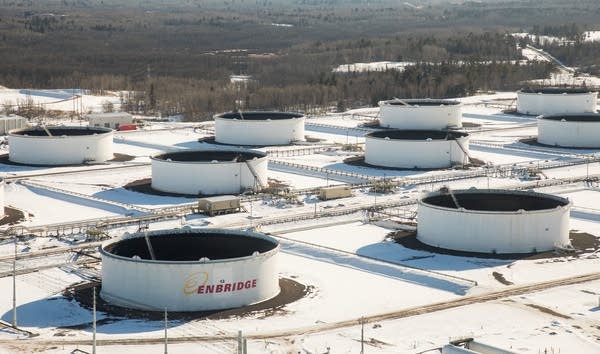State officials agree to give Line 3 permits additional scrutiny

Go Deeper.
Create an account or log in to save stories.
Like this?
Thanks for liking this story! We have added it to a list of your favorite stories.
State regulators agreed Wednesday to hold an additional hearing on a key permit for the proposed Line 3 replacement project, a process that is expected to delay construction of the controversial oil pipeline by several months.
The Minnesota Pollution Control Agency announced that a contested case hearing will be held later this summer on a draft water quality permit for the project, in which a state administrative law judge will hear additional evidence on the proposed pipeline’s impacts on wetlands and stream crossings.
The decision to hold the additional hearing pushes back the MPCA’s deadline to make a decision on the permit — known as a 401 water quality certification — until Nov. 14, three months past the original timeline.
“The contested case hearing will help ensure the certification is protective of one of Minnesota’s most important resources,” said MPCA Commissioner Laura Bishop in a statement.
Turn Up Your Support
MPR News helps you turn down the noise and build shared understanding. Turn up your support for this public resource and keep trusted journalism accessible to all.
State utility regulators have already approved Enbridge’s controversial project. The Canadian company wants to replace an aging, deteriorating pipeline that delivers crude from the Alberta oil sands across northern Minnesota.
But the project has been stalled by legal and regulatory delays, which have raised the estimated project cost to $2.9 billion. The company still needs additional construction permits from the MPCA, the state Department of Natural Resources, and the U.S. Army Corps of Engineers.
In a statement, Enbridge said it still anticipated starting construction on the project before the end of the year, a process that will take six to nine months to complete.
“While the contested case has caused a delay to the permitting process, we believe this additional step will strengthen the MPCA’s decision record,” said Vern Yu, Enbridge’s president of liquids pipelines.
The Red Lake Nation and White Earth Band of Ojibwe, along with several individuals and environmental groups — including Friends of the Headwaters, the Sierra Club and Honor the Earth — had asked for the contested case hearing on a number of grounds, including the pipeline’s contribution to climate change and the risk of oil spills.
But the hearing the MPCA granted will focus on relatively narrow issues, including the amount of wetlands that will be impacted by the project, and the potential impacts where the proposed pipeline would cross streams and rivers.
The Sierra Club’s North Star Chapter Director Margaret Levin welcomed the additional scrutiny on Line 3. “This tar sands pipeline would be a disaster for our waterways and communities, she said.
Honor the Earth also applauded the decision to hold the hearing, but criticized the agency’s decision not to further analyze the potential impacts of oil spills on wild rice and into Lake Superior. The group said it’s considering its legal options.
Meanwhile, industry and labor groups blasted the decision. The pro-pipeline group Minnesotans for Line 3 said it felt misled by the MPCA.
“The same agency that earlier this year said there were no issues with the draft permits for Line 3 today has dramatically changed its mind in a way that will create new needless delays without any factual reason to support this decision,” the group said in a statement.
Pipeline backers say the project is the most studied pipeline in the state’s history, and would create more than 4,000 construction jobs at a time that the state’s economy is reeling from the COVID-19 pandemic.
But the project has faced fierce opposition for the past five years from environmental and citizen groups and several northern Minnesota Ojibwe bands who argue the project would worsen climate change and introduce the risk of oil spills along a new route across the northern third of the state.
The MPCA’s decision to grant a contested case hearing was influenced by a Minnesota Court of Appeals decision earlier this year involving the proposed PolyMet copper-nickel mine, in which the court said the Minnesota DNR erred by not granting a hearing to resolve unresolved factual disputes over that project’s environmental impacts.
The DNR and PolyMet challenged that decision, and the Minnesota Supreme Court has agreed to take up the case. But until that case is resolved, the MPCA said it “is bound by the Court’s decision.”



